Q&A: Exploring AI in Logistics with Good Greek Moving
An Inside Lane Exclusive: The world of moving and shipping is changing fast, all thanks to technology. AI is leading the charge, making things safer and more efficient than ever before.
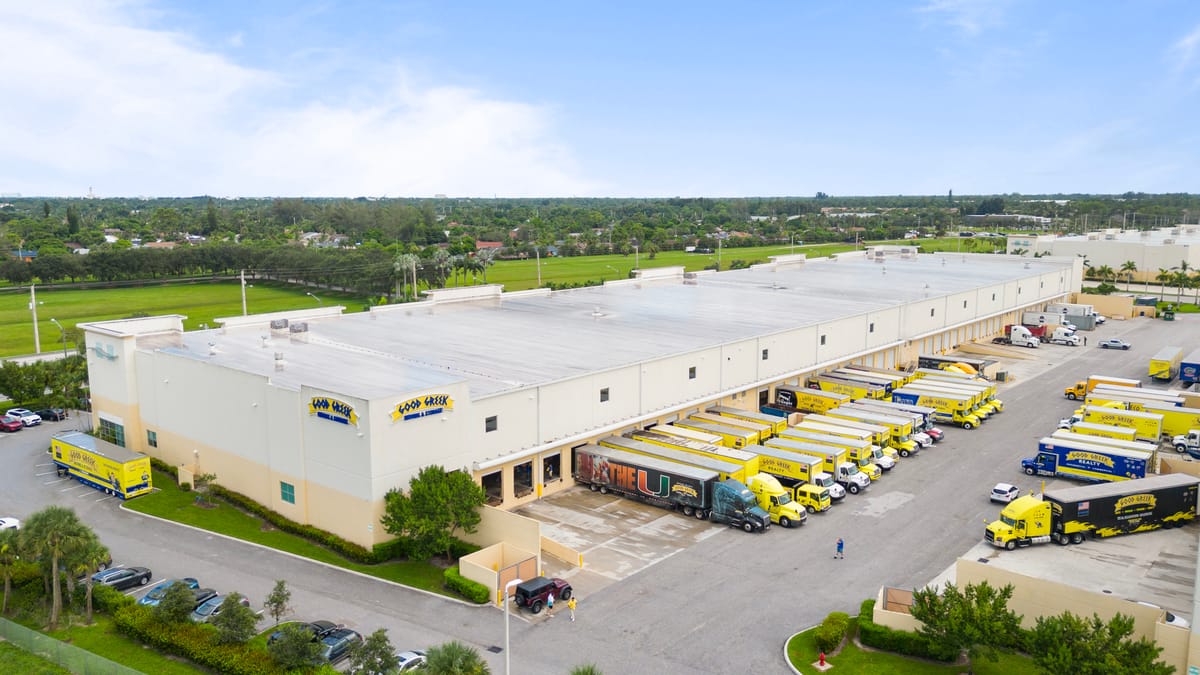
By Bianca Prieto | Editor, The Inside Lane
Fleet owners have a safety responsibility to their drivers – and technology can help safeguard people and cargo.
As the transportation and logistics industry evolves with technological advancements, like fleet tracking it's crucial to spotlight leaders who are not only embracing this change but are also at the forefront of innovation.
Today, we are featuring an exclusive interview with Spero Georgedakis, the owner of Good Greek Moving in South Florida.
A trailblazer in integrating AI and camera tech to enhance fleet safety and efficiency, Georgedakis owns a vast 200-vehicle fleet all outfitted with the latest technology aimed at safeguarding drivers, their assets and the public. Georgedakis shares how innovation shapes operations, cuts costs, and builds a culture of excellence.
Join us as we explore the inner workings of Good Greek Moving and gain insights from a leader who is steering the future of transportation with a blend of experience, innovation, and unwavering dedication to service.
Buckle up and let’s get into it!
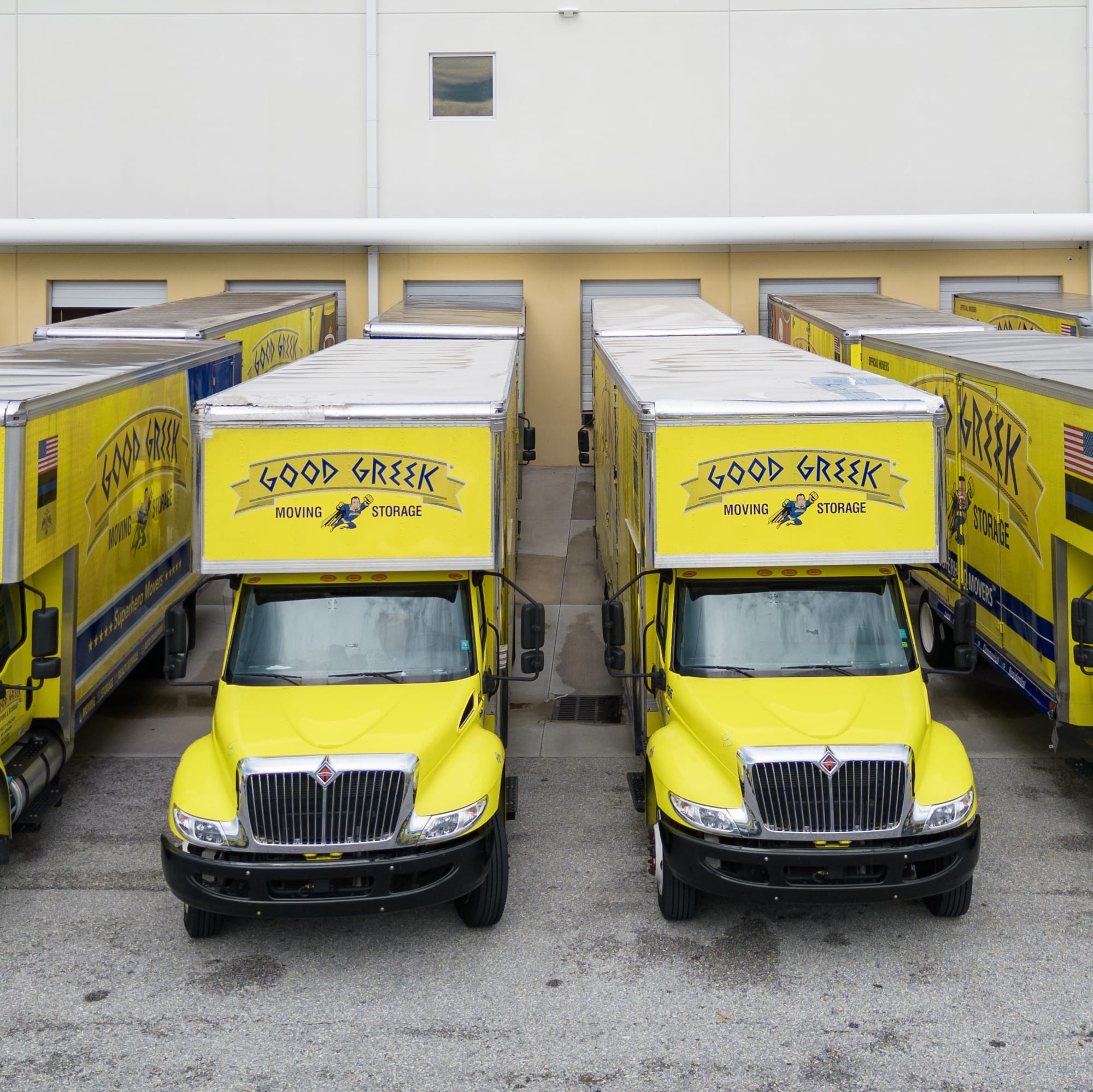

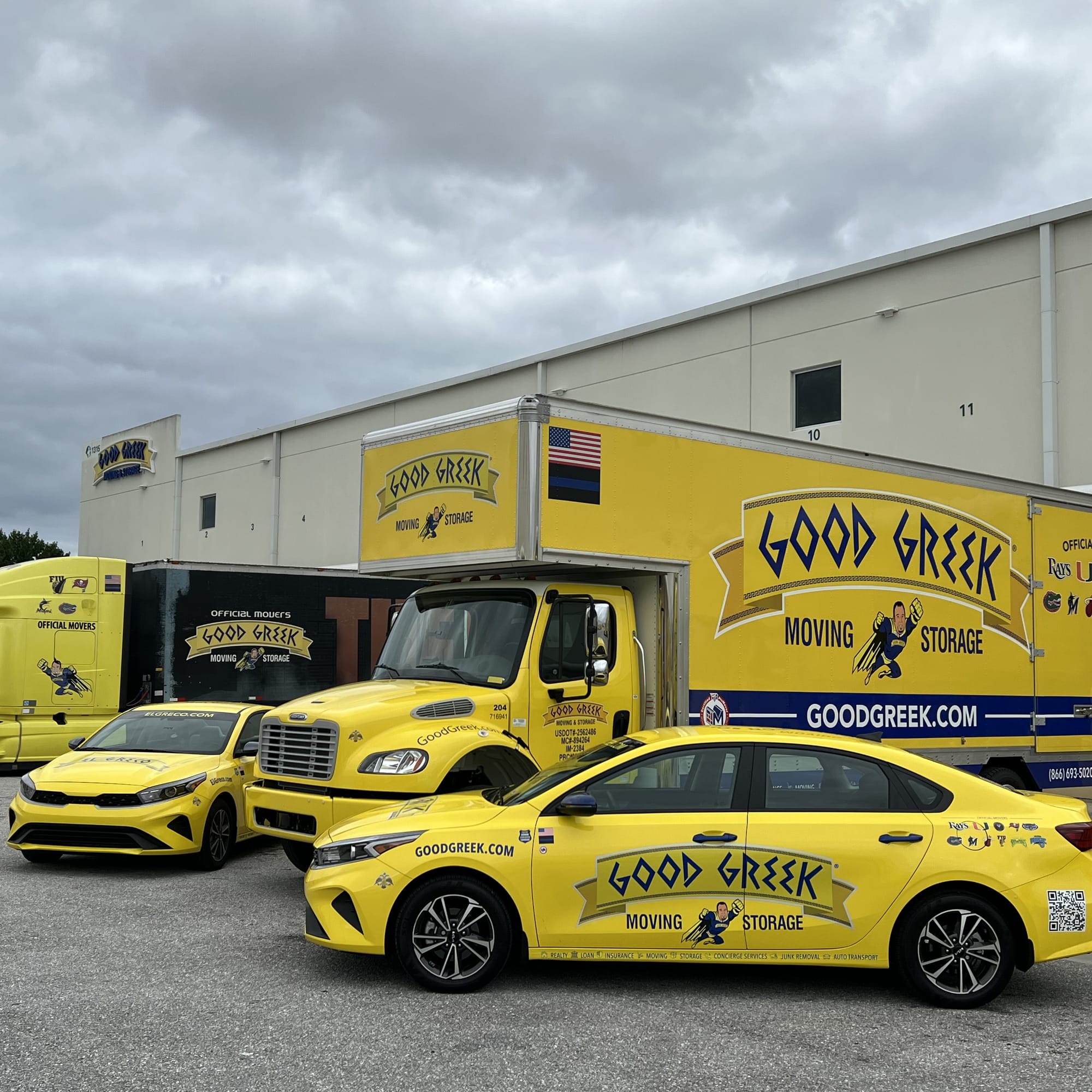
Good Greek Moving owner Spero Georgedakis, center, and his fleet. Credit: Good Greek
The Inside Lane: Today, we're joined by Spero Georgedakis, the owner of Good Greek Moving, a company known for its dedication to helping people move, but also for its innovative approach to the transportation and logistics industry. With a fleet of 200 vehicles, Spero at Good Greek Moving is at the forefront of integrating technology into its operations. Spero, can you tell us how AI and camera systems have transformed your approach to safety and compliance?
Spero Georgedakis: Absolutely, and thank you for the opportunity. At Good Greek Moving, we've always prioritized safety and efficiency. Integrating AI and camera systems into our large and diverse fleet has been a game-changer. These technologies allow us to monitor driving performance in real time, ensuring our drivers adhere to road safety regulations and our internal policies.
This isn't about constant surveillance but about enhancing safety and compliance, and the results speak for themselves with a significant reduction in incidents and improved driving standards.
Q: That's impressive. How have your drivers adapted to the Driver-Facing Camera (DFC) system, and what's been their feedback?
A: Initially, I thought our experienced drivers might be resistant, but it turned out that some of the younger drivers needed more convincing. Overall, the response has been positive. We make it clear that these cameras are for their safety and not for monitoring them during their private time.
The cameras stop recording when the vehicle is stopped, and the engine is off. We are the only ones who can access the video and only do so when we feel it’s necessary. We've addressed privacy concerns effectively, emphasizing that our goal is to protect them and the public.
Q: Can you elaborate on how the AI and camera systems have influenced legal or liability situations?
A: These systems have been crucial in providing clear evidence in incidents where liability is questioned. The exterior camera footage, for instance, has helped exonerate our drivers in accidents. This not only protects them but also supports our ethos of transparency and accountability.
The cameras also help to protect our drivers and our assets. The dash cams are like the ones you may have at your home - when they sense movement outside the truck they begin recording.
Q: That's quite a safety net. How does the AI system interact with your drivers, especially in terms of feedback and alerts?
A: The AI system, from Samsara, is in all of our vehicles. It’s designed to offer real-time feedback and alerts. For example, if a driver is using a phone or about to commit a safety breach, they get an immediate alert in cab. This instant feedback corrects behavior on the spot and has fostered a culture of safety within our fleet. We also get an alert and can offer feedback to correct the behavior.
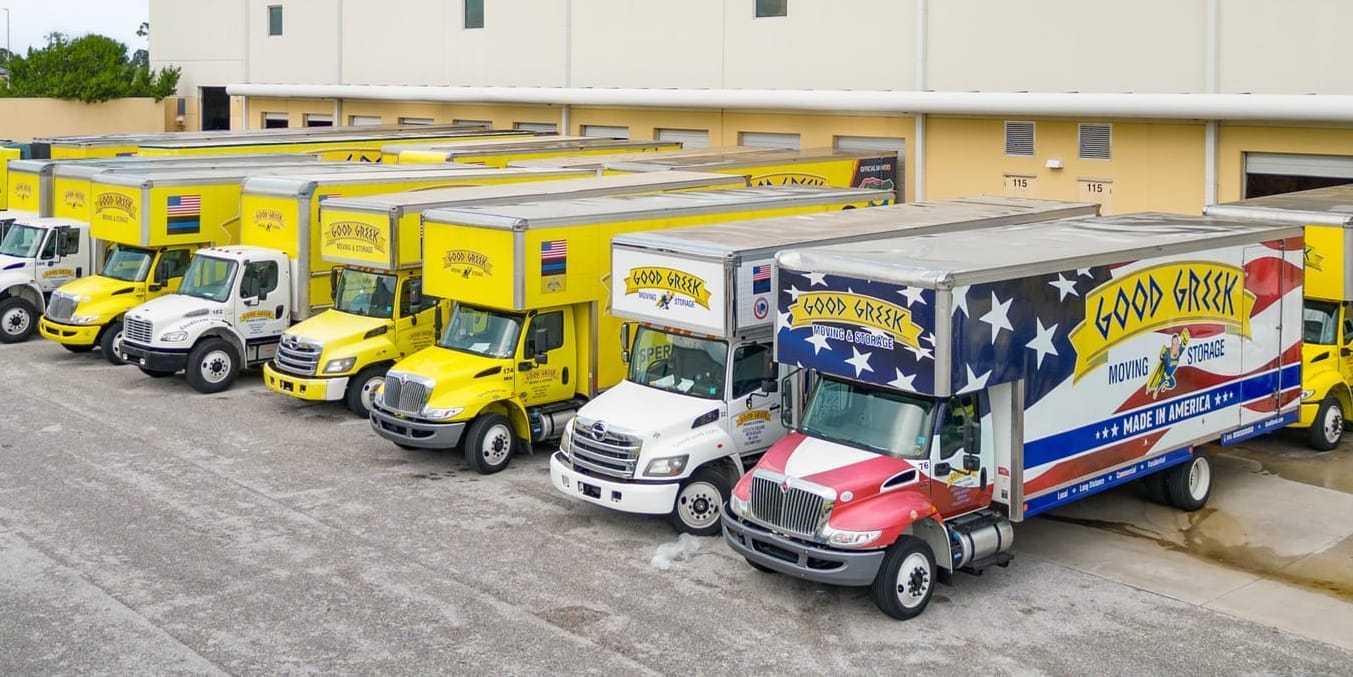
Q: With such a significant investment in technology, how do you ensure your drivers are well-trained to use these systems?
A: Training is key. We provide comprehensive training on how the technology works and its purpose. This includes educating them on our privacy policies and ensuring they're comfortable with the systems. We believe in empowering our drivers with knowledge, as it's crucial for the effective use of technology.
Q: How do you see technology, like AI and camera systems, evolving in your operations?
A: We're always looking ahead. With over 28 years in the moving business, we understand the importance of evolving with technology. It's about enhancing safety, efficiency, and trust, which are the cornerstones of Good Greek Moving.
Q: Spero, your leadership has been integral to Good Greek Moving's success. Can you share more about your personal journey and how your experiences have shaped the company's ethos and direction?
A: My background is somewhat unconventional in the moving industry. I started as a police officer in Miami and served in SWAT for several years. This experience taught me the value of safety, discipline, and building trust within a community.
These principles became the cornerstone of Good Greek Moving. I believe that a company should operate with a sense of responsibility, not just towards its clients, but also towards its employees and the community. This philosophy guides every decision we make, from customer service to integrating cutting-edge technology into our fleet.
Q: That's a compelling background. With the integration of AI and camera technology in your fleet, have you seen a change in your insurance costs?
A: Yes, the impact on our insurance costs has been significant. While our overall insurance rates have increased due to the expansion of our fleet, we've noticed a relative decrease in the rate of incidents and the severity of claims, thanks to the AI and camera systems. This has led to more favorable terms from our insurers, as they recognize the reduced risk. The technology not only makes our operations safer but also more cost-effective in terms of insurance premiums.
Q: And finally, beyond insurance, have these technological advancements brought down other fleet-related costs?
A: Indeed, they have. The implementation of AI and camera systems has led to a decrease in expenses related to accidents and vehicle maintenance. By encouraging safer driving behaviors, these systems help prevent accidents, which in turn reduces the wear and tear on our vehicles. This means fewer repairs and lower maintenance costs. Overall, this technology has not just saved us money but also enhanced the operational efficiency and longevity of our fleet. It's a testament to our commitment to leveraging technology for safety, efficiency, and better service.
As we conclude our insightful conversation with Spero Georgedakis and the innovative strides of Good Greek Moving, it's clear that the integration of AI and camera technology in transportation is not just a trend, but a transformative shift towards enhanced safety and efficiency.
Now, we turn the spotlight to you, our Inside Lane readers. We're eager to hear about your experiences with AI in transportation or logistics.
Have you witnessed similar technological advancements in your company?
What impact has it had on your operations or experiences?
Or perhaps you have questions about implementing AI and camera systems in your own fleet?
Share your stories, experiences, and inquiries with us. Your insights and curiosities help shape the conversation around technological innovation in transportation, leading to a broader understanding and potentially inspiring others in the industry.
Let's continue this discussion and explore the future of transportation together.
Bianca Prieto can be reached at Bianca.Prieto@MVFGlobal.com.




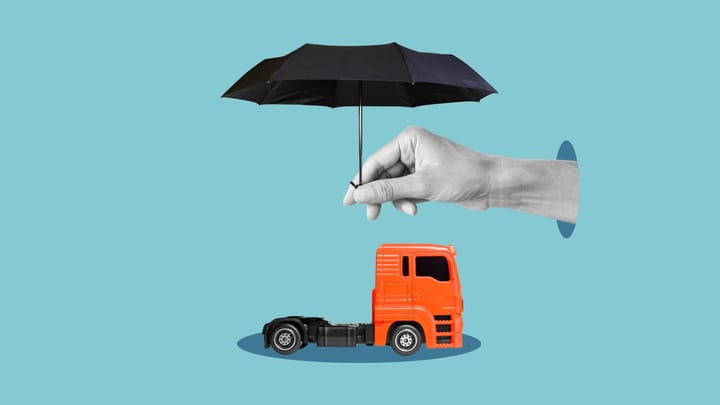
Comments ()